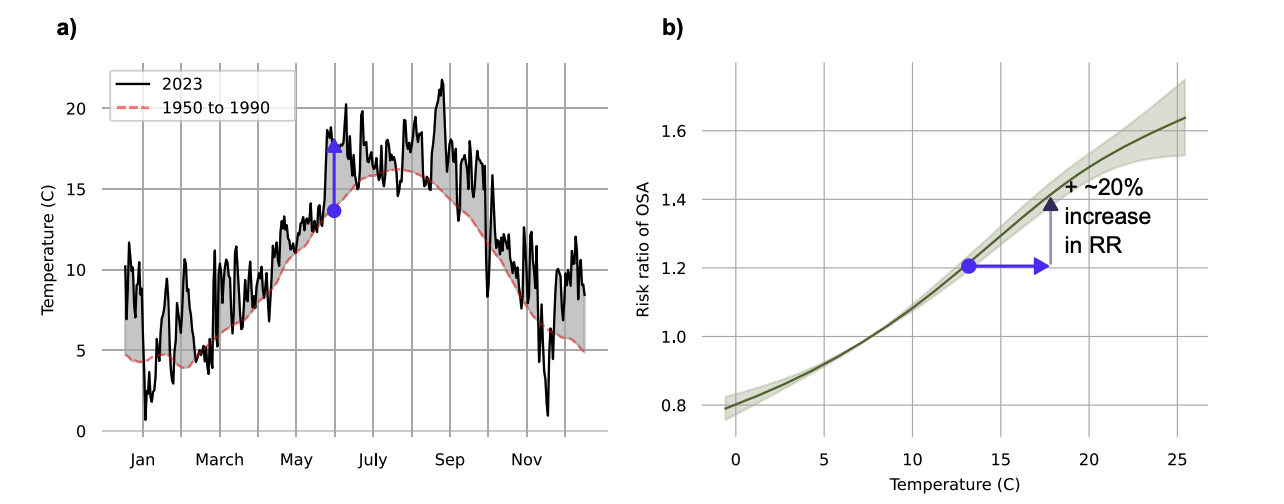Rising temperatures could increase the chances of experiencing obstructive sleep apnea (OSA) by nearly 50 percent by the end of the century, placing a greater burden on society through loss of health, wellbeing, and productivity.
This is the result of a recent investigation into the effects of local temperature increases on OSA, a condition where a person's airways become blocked while sleeping for more than 10 seconds at least five times an hour throughout the night.
"This study helps us to understand how environmental factors like climate might affect health by investigating whether ambient temperatures influence the severity of OSA," says sleep scientist Bastien Lechat from Flinders University in Australia, who led the study.
"Overall, we were surprised by the magnitude of the association between ambient temperature and OSA severity."
Many of the nearly 1 billion people globally with this sleep disorder don't even know they have it, yet it can take a serious toll on their health. Aside from affecting sleep quality, OSA alters the levels of oxygen and carbon dioxide in the blood.
In the long term, this imbalance can affect insulin and glucose metabolism, mental function and mood, and can even lead to cardiovascular problems like heart failure and stroke. Previous research has also linked untreated or severe OSA with increased risk of dementia, Parkinson's disease, traffic accidents, and all-cause mortality.
Lechat and his colleagues drew on data from an under-mattress sleep sensor used by 116,620 people across 29 countries between January 2020 and September 2023. The sensor detects movement and sound which can be analyzed to create estimates of sleep timing, quality, and breathing.
The researchers matched this data – around 500 separate nights per person – with detailed, 24 hour temperature data for participant's nearest cities. In 2023, this coincided with the highest mean temperature recordings on record in over 2000 years, 2.07 °C above pre-industrial levels.

"Higher temperatures were associated with a 45 percent increased likelihood of a sleeper experiencing OSA on a given night," Lechat says.
"The increase in OSA prevalence in 2023 due to global warming was associated with a loss of approximately 800,000 healthy life years across the 29 countries studied. This number is similar to other medical conditions, such as bipolar disorder, Parkinson's disease or chronic kidney diseases."
They estimate that the resulting wellbeing burden and workplace productivity loss cost economies a total of around $98 billion USD, with an estimated 105 million days of workplace productivity lost. All up, this would double the condition's estimated burden on society compared with today.
"Importantly, these findings varied by region, with people in European countries seeing higher rates of OSA when temperatures rise than those in Australia and the United States, perhaps due to different rates of air conditioning usage," Lechat adds.
Because the sleep sensors from which the data were collected are more readily available to people in higher socioeconomic countries and individuals, this study may actually underestimate the true health and economic cost of OSA exacerbated by climate change.
These people may have access to better sleep environments and air conditioning, the researchers point out, mitigating the effect of temperature on their sleep.
Modeling based on government climate change policies from 2020 suggests global warming will raise temperatures by around 2.1–3.4 °C by 2100, unless greenhouse gas emissions are further reduced.
"The health and economic impact of these estimates would be consequential, and the increase in OSA prevalence due to rising temperatures in such scenario may double the overall OSA burden," the authors report.
The research was published in Nature Communications.
